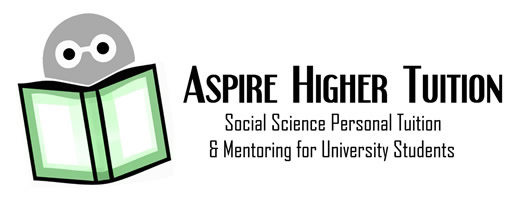Teaching Approach
Much of my research career has been devoted to understanding the needs of the consumer or user of products and services, and this is an approach I have always used in tutoring. I am principally concerned with deconstructing what the student needs from me as a tutor to help them reach their desired goals or outcomes. I take the approach of being a ‘reflective practitioner’ (Schön, 1983) with my students: to try different approaches in order to see what works best and then continue to iteratively improve my approach based on evidence. I also recommend this approach to my students in their work by focusing on understanding their grades, feedback comments and constructive criticism. Ultimately, I aim to be very sensitive to the needs of the individual student and to work with them to give support and confidence. Having worked inside a university for nine years as a member of staff, and been an undergraduate and PhD tutor, I feel I can give students an insight into what is expected from them by their lecturers.
My teaching is also based on a ‘situated learning’ approach where learning: “is an integral part of a generative social practice in the lived-in world” (Lave and Wenger, 1991: 35) and “the mastery of knowledge and skill requires newcomers to move toward full participation in the sociocultural practices of a community” (Lave and Wenger, 1991: 29). In essence, this concerns the process by which newcomers or ‘apprentices’ engage with and become a part of a community of practice which consists of other apprentices, ‘young masters’ and masters. Transparency in assessment is vital for learners to participate, but they can only learn through engagement with communities of knowledge and practice.
Assessment is regarded as teachers’ most powerful lever over the way both students behave as learners and respond to courses (Gibbs, 1999). In a study of students at MIT, Snyder (cited Gibbs, 1999) revealed that students learnt to use messages which are both explicit and implicit to understand what really counts in their assessments. They were shown to deconstruct and look behind the formal curriculum in order to discover and orientate themselves to what he called the ‘hidden curriculum’ (op. cit.). The students’ ability to be ‘cued in’ to the demands of their assessments was shown by Miller and Parlett (cited Gibbs, 1999) to be an important predictor of their overall success. But research also suggests the messages students receive in terms of assessment via feedback comments or grades (marking) are often not accurate or reliable signals for them to orientate to (see for instance Fleming, 1999) – whether to understand either a ‘transparent’ or ‘hidden’ curriculum. There are also problems with how students use and interpret the feedback from their assessments, and to what extent they read the student handbook and how they can apply its ‘transparency’ to their own work. Lave and Wenger (1991: 91) argue that: “‘[t]ransparency’ of the socio-political organization of practice, of its content and of the artefacts engaged in practice, is a crucial resource for increasing participation.” They then go on to state that by transparency, they mean the inner workings of the process should be open to the learner’s inspection. Aspire Higher Tuition offers personal tuition and mentoring for students of the Social Sciences and aims to open up the inner workings of the process.
References:
Fleming, N. D. (1999) ‘Biases in Marking Students’ Written Work: Quality?’, in Brown, S. and Glasner, A. (eds) Assessment Matters in Higher Education – Choosing and Using Diverse Approaches (SRHE & OUP, Buckingham), 83-92.
Gibbs, G. (1999) ‘Using Assessment Strategically to Change the Way Students Learn’, in Brown, S. and Glasner, A. (eds) Assessment Matters in Higher Education – Choosing and Using Diverse Approaches (SRHE & OUP, Buckingham), 41-53.
Lave, J. and Wenger, E. (1991) Situated Learning – Legitimate Peripheral Participation (Cambridge University Press, Cambridge).
Schön, D. A. (1983) The Reflective Practitioner: How Professionals Think In Action (Ashgate, Aldershot).


